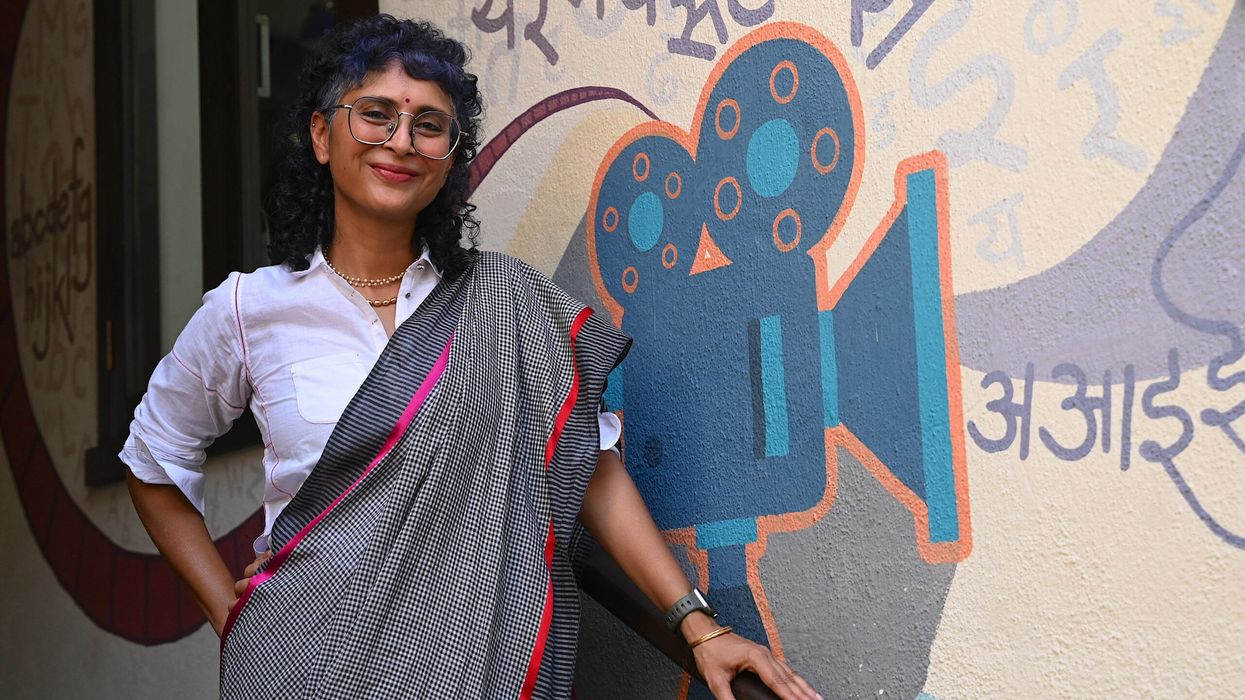Filmmaker Kiran Rao says it is heartening to see LGBTQ stories finding space in mainstream filmmaking, even though the progress has been quite slow.
The Laapataa Ladies director serves as a jury member for the narrative segment of the upcoming edition of the Kashish Pride Film Festival, South Asia's biggest LGBTQ film festival.
Rao said the representation of queer people in films and web series has increased but more needs to be done.
"There's a long way to go before we can stop having to speak about queer issues with this specifically separate lens... But it's slowly happening, as we can see in many shows on OTT, there's a much greater representation of queer people and a more diverse representation, which is very heartening for filmmakers like me and in general, for us as Indians, because this is something I feel we should all be sensitive to.
"We all need to sort of grow and evolve as a society to not have to box people into this other kind of segment," the director told PTI on the sidelines of an event on Wednesday evening.
In some ways, cinema is a reflection of society, which needs to evolve with time, she said.
"It's wonderful that so much has changed in the last two decades in our country."
The 15th edition of the Kashish Pride Film Festival will be held from May 15 to 19 at Liberty Cinema, Alliance Française de Bombay and Cinepolis. Sridhar Rangayan serves as festival director.
During the festival, 133 films from 46 countries across categories will be showcased. The line-up also includes 10 films from transgender filmmakers.
Rao said she felt "incredibly lucky" when she was approached to serve as a jury member for the narrative segment of the festival. The other members on the panel are popular actors Sonali Kulkarni and Barun Sobti.
"For many years, I've wanted to participate and contribute in some way because I feel strongly about the community and the issues that the queer community faces.
"And, it is a lovely way to participate because I get to see films from all over the world. It's been a rich and diverse collection of films and a lot of fun interacting with my jury members, Sonali and Barun," he added.
She believes festivals like Kashish Pride are important as they create a space where many important issues can be discussed.
"I feel like it's helped the mainstream also in some way get to understand the issues that are faced by the queer community," she added.
Kulkarni, known for films such as Mission Kashmir, Dil Chahta Hai, Taxi Number 9211, and The Good Road, said mainstream cinema is slowly and positively accepting LGBTQ characters as a part of society.
"It's a welcome change and there is a lot of hope that I have in today's filmmakers, producers, storytellers, and writers. They are coming up with some brilliant ideas where we are not treating each other with helplessness or extra attention. We are taking each other in the face of life and that is fabulous," she said.




